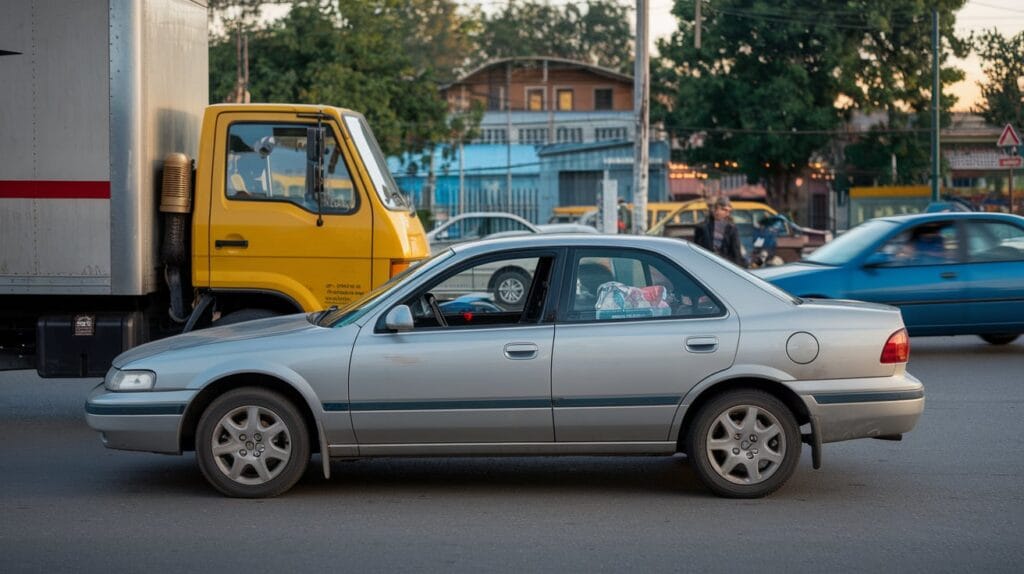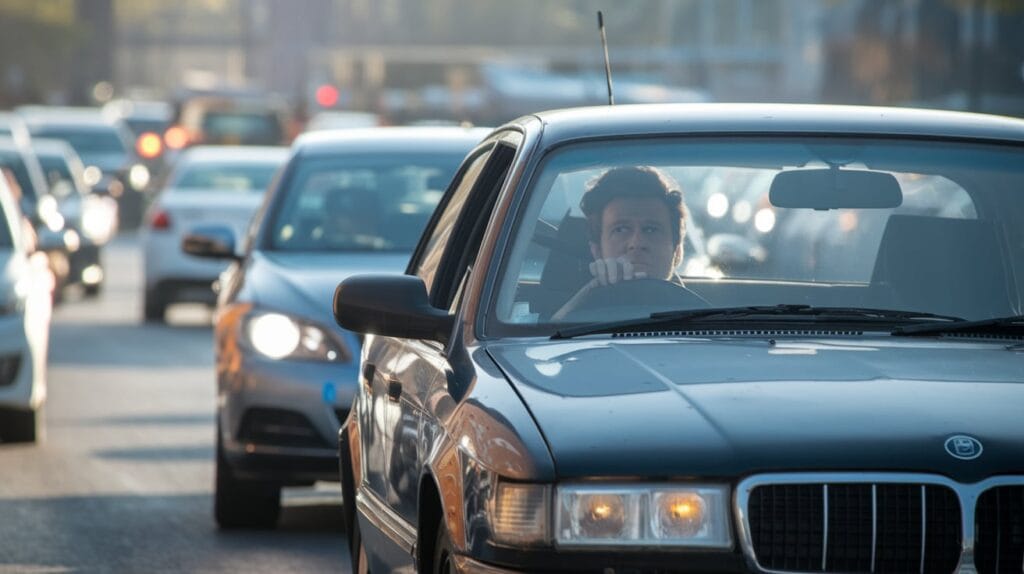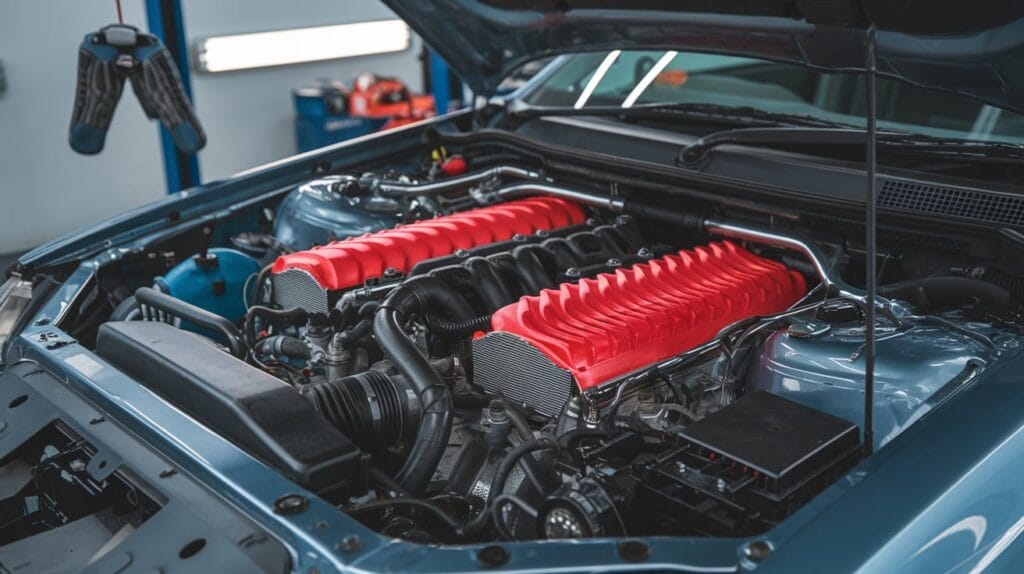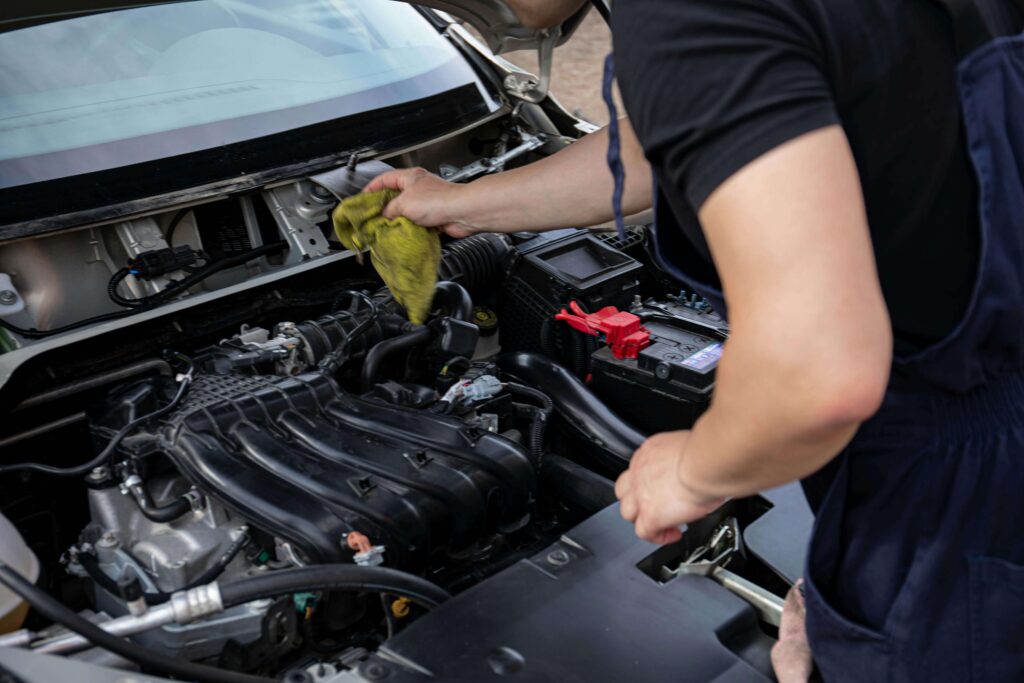The Frustration of Sudden Engine Shut-Offs! Imagine cruising down the highway when, out of nowhere, your car sputters and shuts off mid-drive. It’s not just inconvenient it’s downright terrifying. A sudden engine shutdown can leave you stranded in dangerous situations, disrupt your plans, and even put you and other drivers at risk. But what causes this alarming issue? More importantly, how can you prevent it? Understanding why a car shuts off while driving is crucial to maintaining safety and avoiding costly repairs.
Don’t wait until your vehicle comes to an abrupt halt in the middle of traffic! A car that shuts off unexpectedly could be a sign of deeper issues within the fuel system, electrical components, or sensors. Ignoring these problems can lead to long-term damage and expensive fixes. This guide will walk you through the common causes of why a car shuts off while driving, the symptoms to watch for, and actionable steps to address the problem. Stay informed, take action, and keep your vehicle running smoothly!
Common Reasons Why Car Shuts Off While Driving
When your car suddenly shuts off mid-drive, it’s not just a nuisance it’s a warning sign that something is wrong. Let’s dive into the most common reasons why car shuts off while driving and what might be causing these unexpected stalls.
1. Fuel System Issues
Your engine may abruptly shut off due to a malfunctioning fuel system that disrupts the fuel supply. Among the main concerns with fuel system issues are:
- Faulty Fuel Pump: Prevents adequate fuel pressure, leading to a stall.
- Clogged Fuel Filter: Blocks fuel flow, causing engine hesitation or shutdown.
- Damaged Fuel Injectors: Disrupts the even distribution of fuel to the engine.
- Fuel Line Leaks: Causes fuel loss and pressure drops.
- Sputtering or Power Loss: Noticeable before engine shutdown, often signaling fuel delivery issues.
2. Electrical System Problems
Engine failure may result from electrical problems that shut off power to vital parts. Important issues include:
- Failing Battery: Insufficient power to the vehicle’s electrical systems.
- Malfunctioning Alternator: Prevents proper battery charging, leading to power loss.
- Loose or Corroded Wiring: Interferes with the flow of power to essential components.
- Dashboard Flickering Lights: A sign of electrical system failure or weak battery power.
3. Sensor Malfunctions
Important engine operations are managed via sensors. The vehicle may abruptly cut off if they malfunctions. Typical sensor problems include:
- Crankshaft Position Sensor Failure: Disrupts engine timing and causes stalling.
- Mass Airflow (MAF) Sensor Failure: Incorrect air-fuel mixture signals, leading to engine shutdown.
- Camshaft Position Sensor Failure: Affects fuel injection timing, causing stalls.
4. Ignition System Failures
Engine shutdowns may occur from improper combustion caused by a defective ignition system. Issues could include:
- Faulty Spark Plugs: Disrupt the ignition process, causing stalling or power loss.
- Ignition Coil Failure: Inability to deliver sufficient power to spark plugs.
- Distributor Problems: Leads to poor timing or complete failure to ignite the engine.
5. Overheating
To stop additional damage, an overheating engine might immediately shut down. Among the main reasons for overheating are:
- Failing Thermostat: Prevents coolant flow, causing the engine to overheat.
- Low Coolant Levels: Insufficient coolant leads to high engine temperatures.
- Broken Radiator or Water Pump: Prevents effective heat dissipation, resulting in engine failure.
6. Fuel Quality Issues
Fuel that is polluted or of low quality might block the engine and interfere with combustion. Important concerns include:
- Water in Fuel: Can cause stalling and engine misfires.
- Debris in Fuel Tank: Clogs fuel filters and injectors, leading to shutdowns.
- Low-Quality Gasoline: This leads to poor combustion and performance issues.
7. Transmission Problems
Proper engine operation might be hindered by a defective transmission, particularly while shifting gears. Important transmission problems consist of:
- Slipping Transmission: Causes hesitation or stalling during acceleration.
- Worn Clutch: Especially in manual vehicles, can cause power loss and engine shutdown.
- Automatic Transmission Failures: Damaged components can disrupt engine power transfer.
Don’t ignore these warning signs! Understanding why car shuts off while driving is the first step to diagnosing and resolving the issue, keeping your car safe and reliable on the road.
Symptoms to Watch For Before Your Car Shuts Off While Driving
Your car rarely shuts off without warning. There are usually signs that something is wrong. Identifying these symptoms early can help you avoid dangerous situations and costly repairs. Here are the key indicators to watch for that could explain why car shuts off while driving:
1. Engine Sputtering or Stalling
It is a warning sign if your engine sputters, hesitates, or stalls while you are driving. This frequently signals problems with the fuel system that are interfering with the engine’s fuel delivery, including a malfunctioning fuel pump or a clogged fuel filter.
2. Warning Lights on the Dashboard
Be mindful of the warning lights on your dashboard. The “Check Engine,” “Battery,” or “Oil” lights are examples of indicators that may indicate issues with your electrical system, sensors, or engine parts, which could be the cause of your automobile shutting off while you’re driving.
3. Loss of Power Steering or Brakes
You might suddenly lose power to the steering or brakes if your automobile switches off while you’re driving, which would make it more difficult to operate the vehicle. This is very risky and frequently connected to mechanical or electrical malfunctions.
4. Unusual Noises or Vibrations
Unusual sounds like grinding, knocking, or hissing may indicate problems are about to arise. Shaking or vibrations, particularly when accelerating or at idling, could indicate issues with the sensors or ignition system.
5. Fuel Odor or Smoke
Exhaust smoke or a strong gasoline odor are never good signs. These might be signs of poor fuel quality or a broken fuel pressure regulator, which could cause uneven combustion and even shutdowns.
Don’t ignore these signs! Recognizing these symptoms early can help you address why car shuts off while driving before it leads to a breakdown on the road.
Dangers of Ignoring Why Car Shuts Off While Driving
When your car shuts off while driving, it’s more than just an inconvenience it’s a warning sign that demands immediate attention. Ignoring this issue can lead to serious consequences, putting your safety and your wallet at risk.
- Safety Hazards: You may lose power steering or brakes due to an abrupt engine stop, which makes driving more difficult. This increases the risk of accidents, especially in high-traffic areas or at high speeds. Don’t take chances with your safety address why car shuts off while driving as soon as possible.
- Damage to Engine Components: Long-term issues with electrical systems, sensors, or fuel supply can seriously harm vital parts like the transmission, catalytic converter, or fuel pump. These damages can escalate quickly, turning a minor repair into a major overhaul.
- Increased Repair Costs: It gets more costly the longer you neglect the problem. Delayed maintenance can lead to costly repairs, such as replacing multiple components or addressing extensive engine damage caused by unresolved failures.
- Decreased Reliability: A car that shuts off while driving is unreliable and may leave you stranded in inconvenient or unsafe locations. This can disrupt your daily routine and lead to further complications.
Don’t wait until it’s too late! Addressing why car shuts off while driving promptly can save you from dangerous situations, expensive repairs, and unnecessary stress. Prioritize your safety and vehicle health today.
How to Diagnose Why Car Shuts Off While Driving?
Diagnosing why car shuts off while driving is the first step to resolving the issue and preventing future breakdowns. Here are the key steps to pinpoint the root cause:
Scan for Trouble Codes
Start by using an OBD-II scanner to retrieve fault codes from your vehicle’s computer. These codes can provide valuable insight into the root cause. Key issues it can detect include:
- Malfunctioning sensors (e.g., crankshaft or camshaft sensors).
- Fuel system failures, such as a weak fuel pump or clogged injectors.
- Electrical problems, including alternator or battery faults.
- Emissions system issues, such as a faulty catalytic converter.
Fuel Delivery Check
Inspect the fuel system to ensure proper fuel flow. Things to examine include:
- Fuel Pump: Check if it’s delivering adequate fuel pressure to the engine.
- Fuel Filter: Look for blockages or dirt that could restrict fuel flow.
- Fuel Injectors: Inspect for clogs or leaks that might disrupt combustion.
Electrical System Test
Use a multimeter to diagnose electrical components for potential failures:
- Alternator: Test if it’s charging the battery and supplying power to the engine.
- Battery: Check for sufficient voltage and ensure terminals are clean and secure.
- Wiring Connections: Look for loose, frayed, or corroded wires that might interrupt the power supply.
Inspect Key Sensors
Faulty sensors can cause erratic engine performance or shutdowns. Focus on these critical sensors:
- Crankshaft Position Sensor: Responsible for engine timing and ignition.
- Camshaft Position Sensor: Ensures correct fuel injection timing.
- Mass Airflow (MAF) Sensor: Regulates the air-fuel mixture for combustion.
Professional Inspection
If the issue remains unresolved, consult a mechanic for a comprehensive diagnostic. Mechanics can:
- Use advanced diagnostic tools to detect hidden problems.
- Perform detailed tests on components like the ECU (engine control unit) and fuel system.
- Provide expert solutions for why car shuts off while driving.
Don’t leave your car’s performance to chance diagnosing the issue early can save you time, money, and frustration.
How to Fix Car Shuts Off While Driving Issues?
Fixing why car shuts off while driving requires addressing the underlying cause promptly to avoid further damage and ensure safe driving. Here are the most common solutions for this issue:
1. Fuel System Repairs
Problems in the fuel system are a leading cause of engine shutdowns. To resolve them:
- Replace Faulty Fuel Pumps: Ensure adequate fuel pressure delivery to the engine.
- Clean or Replace Clogged Fuel Filters: Restore smooth fuel flow and prevent blockages.
- Repair or Replace Fuel Injectors: Address clogs or leaks disrupting fuel delivery.
2. Electrical Repairs
Electrical failures can cut off power to the engine. Fixes include:
- Replace a Dead Battery: Ensure consistent power to all electrical components.
- Repair Alternators: Restore proper charging to the battery and engine.
- Fix Wiring Issues: Tighten loose connections or replace corroded wires.
3. Sensor Replacement
Malfunctioning sensors can disrupt engine timing and fuel-air ratios. Solutions include:
- Install a New Crankshaft Position Sensor: Prevent stalling caused by timing issues.
- Replace a Faulty MAF Sensor: Ensure proper regulation of the air-fuel mixture.
4. Ignition System Fixes
Ignition problems can cause incomplete combustion or engine stalls. Repair options:
- Replace Damaged Spark Plugs: Restore efficient ignition of the fuel-air mixture.
- Repair or Replace Ignition Coils: Ensure consistent delivery of voltage to spark plugs.
- Fix or Replace Distributors: Maintain precise engine timing.
5. Overheating Solutions
If overheating is the issue:
- Repair the Cooling System: Fix leaks or replace failing components like the radiator or water pump.
- Replace the Thermostat: Ensure the engine stays within the optimal temperature range.
6. Fuel Quality Management
Poor-quality or contaminated fuel can harm engine performance. Steps to fix this:
- Drain the Fuel Tank: Remove water or debris contaminating the fuel.
- Refill with High-Quality Gasoline: Use fuel from reputable stations to prevent future issues.
7. Transmission Repairs
A malfunctioning transmission can cause stalling or engine failure. Repairs include:
- Adjust Transmission Components: Fix slipping or gear-shifting problems.
- Replace Damaged Parts: Repair worn-out clutches or other critical transmission components.
Acting promptly to address why car shuts off while driving can save you from costly repairs and dangerous situations. Regular maintenance and immediate attention to issues are essential for keeping your car running smoothly.
Steps to Prevent Why Car Shuts Off While Driving
Prevention is always better than repair. By taking proactive measures, you can avoid the stress and danger of unexpected engine shutdowns. Here are key steps to prevent why car shuts off while driving and keep your vehicle running smoothly:
1. Routine Maintenance
Regular maintenance is the backbone of vehicle reliability.
- Schedule oil changes on time to ensure the engine runs smoothly.
- Replace air and fuel filters regularly to maintain proper airflow and fuel delivery.
- Get periodic tune-ups to address minor issues before they escalate.
2. Monitor Dashboard Warning Lights
Your car’s dashboard warning lights are an early alert system for potential problems.
- Don’t ignore indicators like the “Check Engine” or “Battery” light.
- Investigate issues immediately to address why car shuts off while driving before it happens.
3. Inspect Key Components
Regular inspections can catch wear and tear before it leads to failure.
- Check critical sensors like the crankshaft, camshaft, and MAF sensors.
- Inspect the fuel pump, filter, and injectors to ensure proper fuel delivery.
- Test the ignition system, including spark plugs and coils, for optimal performance.
4. Maintain Fuel Quality
Using high-quality fuel protects your engine and prevents clogs.
- Always refuel at trusted stations to avoid contaminated gasoline.
- Replace fuel filters as recommended to keep your system clean and efficient.
5. Drive Responsibly
Driving habits can directly impact your vehicle’s performance.
- Avoid overloading your car, which puts unnecessary strain on the engine.
- Drive smoothly and avoid aggressive acceleration or braking to reduce wear.
Don’t wait until it’s too late! Following these steps can save you from the frustration of why car shuts off while driving and help you enjoy a reliable, trouble-free driving experience. Regular care and attention to your car’s health ensure peace of mind on the road!
FAQs About Why Car Shuts Off While Driving
If you’re wondering why car shuts off while driving, these common questions and answers can help you understand and address the issue:
1. What Should I Do If My Car Shuts Off While Driving?
Stay calm and steer to the side of the road safely. Turn on your hazard lights and try restarting the engine. If it doesn’t start, call for roadside assistance to avoid further complications.
2. Can Low Fuel Cause My Car to Shut Off?
Yes, running out of fuel can cause your engine to shut off mid-drive. A malfunctioning fuel gauge or procrastination at the pump could be the reason. Always keep your fuel tank at least a quarter full to avoid stalling.
3. Is a Bad Alternator the Reason Why Car Shuts Off While Driving?
A bad alternator can be a major culprit. It fails to charge the battery or provide enough power to the engine, causing it to shut off suddenly. Warning signs include dim lights or a flickering battery warning.
4. How Much Does It Cost to Fix Car Shutdown Issues?
Repair costs vary depending on the problem. Replacing a fuel pump may cost $300–$900, while alternator repairs range from $200–$500. Diagnosing the exact issue will give you a better idea of expenses.
5. Can Overheating Cause the Car to Shut Off While Driving?
Yes, an overheating engine can trigger an automatic shutdown to prevent severe damage. This could be caused by low coolant levels, a faulty thermostat, or a failing radiator. Address overheating immediately to avoid costly engine repairs.
If you notice symptoms or experience issues, act quickly! Understanding why car shuts off while driving is essential to keeping your vehicle safe and reliable.
Act Fast to Stay Safe!
Understanding why car shuts off while driving is crucial to ensuring your safety on the road. Ignoring the signs of a failing fuel system, electrical issues, or overheating can lead to dangerous situations and costly repairs. Regular maintenance, like oil changes and sensor inspections, along with professional diagnostics, can help identify and fix problems before they escalate.
Don’t wait until you’re stranded or your vehicle suffers severe damage! Address warning signs early, schedule routine inspections, and consult a trusted mechanic to keep your car running smoothly. Take action today for a safer, more reliable driving experience!





